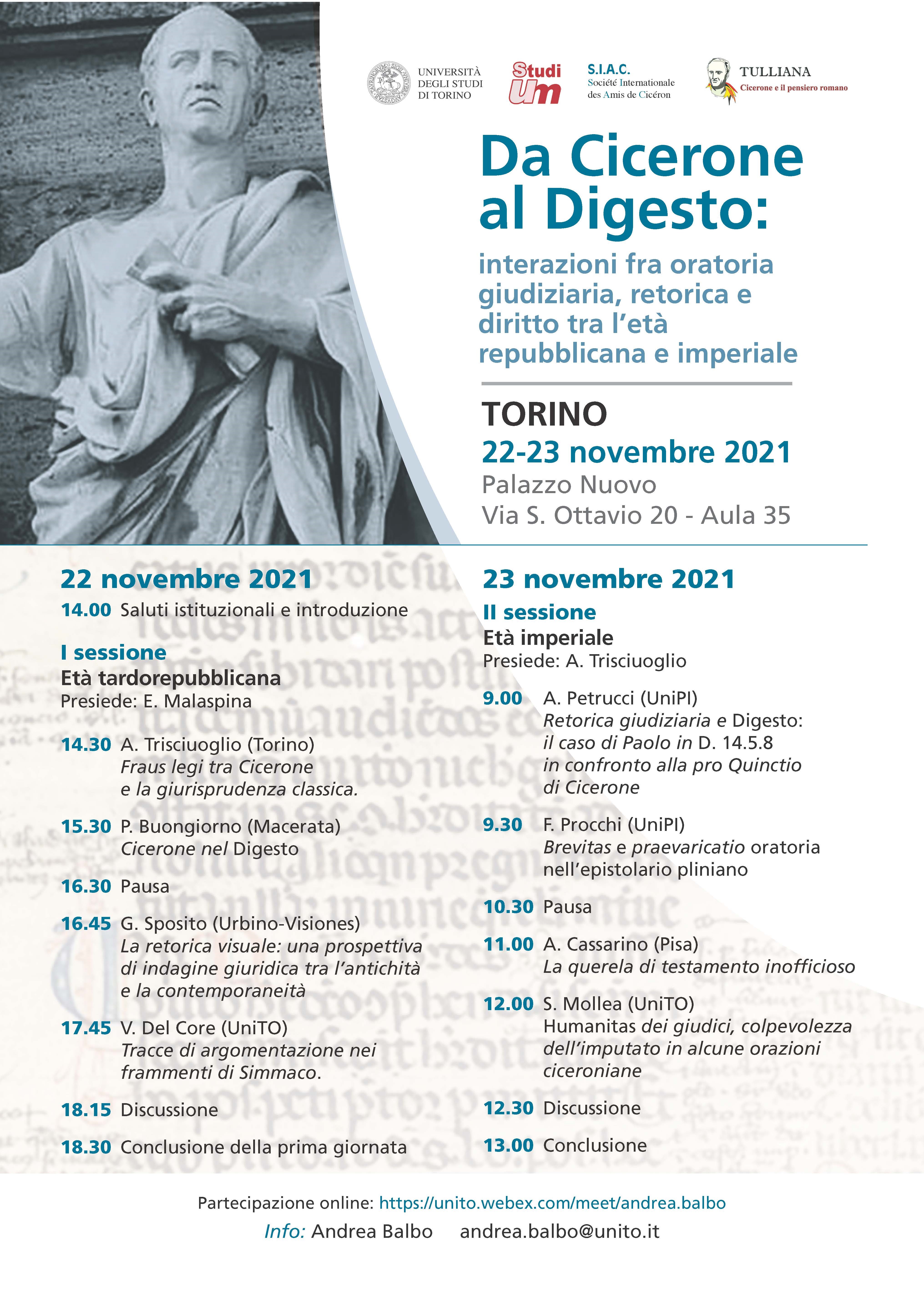Two commercial suits compared: the case of Titianus Primus (Paul. 1 decr. d. 14, 5, 8) and Cicero's Pro Quinctio
DOI:
https://doi.org/10.13135/2532-5353/7265Abstract
Ancient sources provide us with a wealth of information on two trials involving commercial disputes that took place more than three centuries apart. The first is reported by the jurist Julius Paulus at the beginning of the 3rd century AD and concerns a problem of contractual liability due to the non-payment by an agent of the price of a consignment of barley. We have extensive information about the context and proceedings: we know its stages (first instance and appeal judgement), the arguments put forward by the parties in support of their case and the sentences that conclude it. However, we have little in the way of the judicial rhetoric employed, as the material largely focuses on the treatment of the legal issues discussed and resolved. The second trial is the one in which a young Cicero delivered the Pro Quinctio in 81 B.C., a defence speech in proceedings concerning debts between partners. Unlike the first case, here we can fully appreciate the rhetorical skills displayed by the orator before the judge, but we do not know the outcome of the trial. The comparison of the two cases, despite the differences just highlighted, allows us to put forward some reflections on the role of judicial oratory even in proceedings on matters of a commercial nature, which apparently do not seem to need it.
Downloads
Downloads
Published
How to Cite
Issue
Section
License
Authors who publish with this journal agree to the following terms:
- Authors retain copyright and grant the journal right of first publication with the work simultaneously licensed under a Creative Commons Attribution License that allows others to share the work with an acknowledgement of the work's authorship and initial publication in this journal.
- Authors are able to enter into separate, additional contractual arrangements for the non-exclusive distribution of the journal's published version of the work (e.g., post it to an institutional repository or publish it in a book), with an acknowledgement of its initial publication in this journal.


 Ciceroniana On Line is recognised by ANVUR (the National Agency for the Evaluation of the University System and Research) as a CLASS A journal for the Sciences of Antiquity, Philology, Literature and History of Art (
Ciceroniana On Line is recognised by ANVUR (the National Agency for the Evaluation of the University System and Research) as a CLASS A journal for the Sciences of Antiquity, Philology, Literature and History of Art ( The journal is included in DOAJ. The DOAJ listing of the journals is available at
The journal is included in DOAJ. The DOAJ listing of the journals is available at  The journal is indexed in
The journal is indexed in  The journal has been included in ERIH PLUS. The ERIH PLUS listing of the journals is available at
The journal has been included in ERIH PLUS. The ERIH PLUS listing of the journals is available at 

